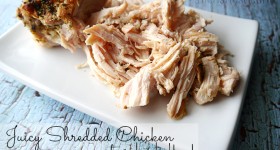 Unfortunately, hemorrhoids – the varicose veins in the rectum or anus – are a common complaint among pregnant women. Because of the increasing weight during the months of pregnancy (especially during the last trimester), the veins below the uterus dilate. Symptoms may include stinging, bleeding, pain, and itching. The increase in size of hemorrhoid vessels is also affected by the hormonal changes during pregnancy. Specifically, the hormone progesterone increases naturally during pregnancy, causing the walls of veins to ease and swell easily. The particular hormone can also cause constipation, and straining of pelvic muscles as a result of constipation can lead to new hemorrhoids or aggravate existing because of the swollen veins.
Unfortunately, hemorrhoids – the varicose veins in the rectum or anus – are a common complaint among pregnant women. Because of the increasing weight during the months of pregnancy (especially during the last trimester), the veins below the uterus dilate. Symptoms may include stinging, bleeding, pain, and itching. The increase in size of hemorrhoid vessels is also affected by the hormonal changes during pregnancy. Specifically, the hormone progesterone increases naturally during pregnancy, causing the walls of veins to ease and swell easily. The particular hormone can also cause constipation, and straining of pelvic muscles as a result of constipation can lead to new hemorrhoids or aggravate existing because of the swollen veins.
What can you do to avoid Hemorrhoids During Pregnancy?
Once you develop this condition, it doesn’t usually go away unless you perform one of the treatment procedures. The good news is that most hemorrhoids improve significantly with the following treatment options:
Fiber rich diet
Increase your daily intake of fiber by eating fiber-rich foods and taking a fiber supplement such as Citrucel or Fibercon. Fiber, along with adequate water intake, is responsible for softening stools and making it easy for them to pass through, thereby decreasing pressure on hemorrhoids. Fiber supplements also help in reducing bleeding, and enlargement of veins when suffering hemorrhoids. Foods such as fresh fruit, grain foods, and broccoli may also help in reducing the small amount of stools trapped inside blood vessels. The typical intake of fiber should be 25-35 grams per day, accompanied by an appropriate amount of fluid intake.
Natural oils
Oils are another option for natural treatment of hemorrhoid symptoms. Essential oils are effective and can provide long-lasting relief. These oils can easily be applied to the pain area; it works to shrink hemorrhoids and provide quick pain relief by reducing swelling. Essential oils also include anti-inflammatory properties for treating symptoms of hemorrhoids with small bleeding symptoms. For even occasional bleeding, the symptoms must be treated to provide faster relief and reduce pain as well as other symptoms. And because these oils are easily absorbed, they contain no side effects and have a soothing effect on hemorrhoids instead of causing irritation as experience with other medications. Always look for options that are approved by the Food & Drug Administration (FDA).
Hygiene
Keeping the anal area clean and applying cold compression with ice packs for five minutes at a time, three times a day, can reduce symptoms of itching and swelling. Soaking the area in warm water for five to ten minutes each day can sooth the condition during pregnancy and after conceiving. Avoid soaking in full warm water, but opt for lukewarm as it will minimize discomfort. If you experience hemorrhoids prolapsing outside the anus, it might be possible to push them back gently into the rectal canal. But do not try to push if it is difficult uncomfortable to do so; follow one of the previous two remedies or contact a specialist. The most natural hemorrhoid treatment options are prescribed for the condition during pregnancy and after childbirth, given the complexity of changes a pregnant woman’s body must undergo during pregnancy. Often, a fiber-rich diet, cold compression, and natural ointments are enough to treat hemorrhoids.
*image source: barbed wire cco1.0




















I am only 17 years old and I have been suffering from hemorrhoids, is this even possible? I have gone to my physician and gastroenterologist, they have given me countless medications and they haven’t worked. I have changed my diet to include more water and fiber but hasn’t worked. When I go the bathroom there is constipation and it’s very painful and the hemorrhoids do come out, but they go back in when I am done. Should I go to a general surgeon? I have read an article about HemAway Cream. Have you ever tried it? Is it really effective?